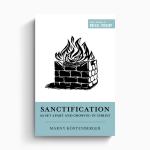This post is part of a series walking through the third volume of Abraham Kuyper’s Common Grace
Social life is a uniquely human need based in creation–though there are parallels in the animal world as well (ants, bees, etc). We need companionship both because we’re part of the organic unity of humanity and because of external pressures–dangers from the natural world, the smallness of man in space, etc. This trait can be silenced, but it is there.
Outside of sin this communal need would have led to flourishing. With sin the whole is soured–look at Cain and Abel. Envy works its way through relationships and the ordinance to flourish and multiply is corrupted by selfishness. Without common grace, society would have been utterly wrecked.
With common grace, civil society “represents the expression of human beings living together.” (484) This is not Christian fellowship, and Christians in turn do not separate from civil society. To attempt retreat is to misunderstand the dual nature of existence– “creation and recreation.” “As Christians we belong to both and are required to fulfill our calling in both.” (485)
The Anabaptists tried to create a new society and bring about the eschaton. We saw the results of this in the Reformation–though the question of sin and withdrawal must be engaged, especially given Paul’s repeated warnings “not to mix with the world.” (485) These warnings come with commands to engage well in civil life, so we must resist the two extremes. “We must reject being absorbed into the world, and we equally must reject leaving the world.” (485) Wisdom is balancing this well and seeing the common grace/particular grace difference in the roots of society and church life.
We also see the point of unity between the two sorts of grace in the Christian life in the church as organism, where it is woven throughout society (while the church as institution is not and stands apart in particular grace). This lead sto three realms, and three conclusions:
- “in the church as an institution… as members of the church, we must join the ecclesiastical institution that has the purest ministry of the Word and sacraments;
- in the Christian circles of society… in social life, we will be drawn to those circles in which people have come under the influence of the Christian gospel;
- in the life of the world where spiritual reality has not yet come to be fully manifest… as citizens, we will fulfill our calling as well in that broader social realm that exists only on the basis of the principles of the world.” (486)
We must not neglect any of these callings.
Providence directs society, with the family as society’s root. The need for safety and shelter drove society after the fall, but that means we have always had to deal with neighbors , sometimes with mutual obligations and sometimes we need protection from them. Authority is thus needed and grows as appropriate to the need. These needs then drive our civic life, and we are obligated to think well about them.
We should also not “voluntary associations”, which are more than clubs but less than society itself. These affect social life for good and for ill.
Dr. Coyle Neal is co-host of the City of Man Podcast an Amazon Associate (which is linked in this blog), and an Associate Professor of Political Science at Southwest Baptist University in Bolivar, MO













